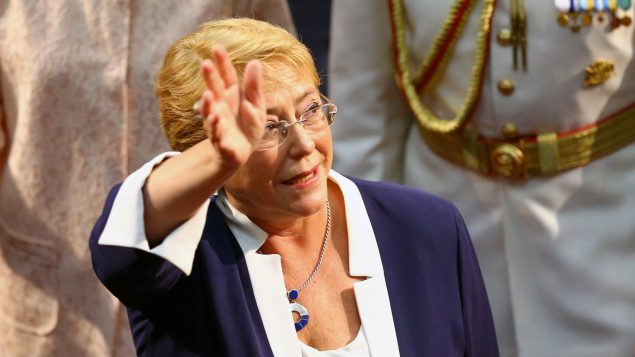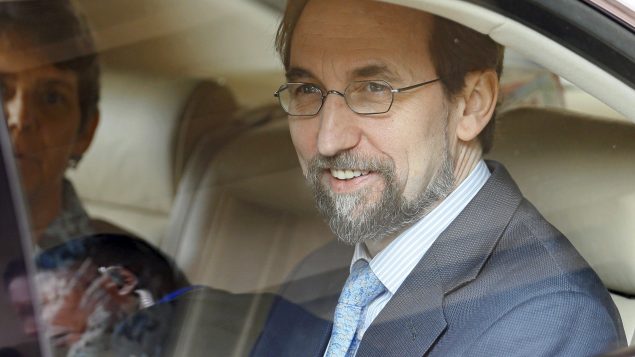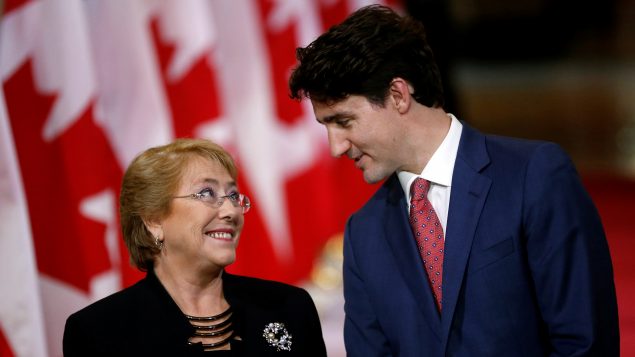Canada welcomes the decision to appoint Michelle Bachelet, former president of Chile, as the next UN human rights chief, Canadian officials said Friday.
UN General Assembly voted Friday to appoint Bachelet as the organization’s next High Commissioner for Human Rights.
She will take over from Jordan’s Zeid Ra’ad Al Hussein as of Sept. 1.
This is Bachelet’s second appointment to a leading UN position. From 2010-13, she served as the first leader of UN Women before returning to politics and winning a second term as Chile’s president.
“Ms. Bachelet brings with her a wealth of experience, including as a champion for gender equality and the rights of women and girls,” said a statement by Global Affairs Canada.
The 66-year-old former physician and political prisoner, who was tortured under the regime of Chilean dictator Augusto Pinochet, brings unique qualifications to the high-profile job.

Chile’s former President Michelle Bachelet leaves the Congress after the inauguration ceremony of Chile’s newly sworn in President Sebastian Pinera in Valparaiso, Chile March 11, 2018. (Ivan Alvarado/REUTERS)
Bachelet became Chile’s first female president, serving two non-consecutive terms from 2006-10 and 2014-18.
As the president of Chile, Bachelet pushed through an ambitious reform programme, including free higher education for many students, a liberalization of abortion legislation and moves to boost public pensions.
Minutes after she was voted in, UN Secretary General Antonio Guterres told reporters he was “delighted” by the news of her official appointment.
Bachelet “has been as formidable a figure in her native Chile, as she has at the United Nations,” Guterres said.
“She has lived under the darkness of dictatorship,” Guterres said. “As a physician, she knows the trials of people thirsting for health and yearning to enjoy other vital economic and social rights. And she knows the responsibilities of both national and global leadership”.
Following the announcement, Bachelet said she was “deeply humbled and honored” to have been entrusted with “this important task.”

United Nations (U.N.) High Commissioner for Human Rights Zeid Raad Al Hussein (R) smiles after meeting the media while leaving his hotel to meet Sri Lankan politicians and diplomats in Colombo February 6, 2016. Chile’s Michelle Bachelet replaces him as the UN rights chief as of Sept. 1, 2018. (Dinuka Liyanawatte/REUTERS)
Canada also extended its gratitude to the outgoing high commissioner, Zeid Ra’ad Al Hussein.
Under his leadership, the Office of the High Commissioner for Human Rights (OHCHR) strengthened the human rights agenda of the United Nations, Canadian officials said.
In 2016, Canada announced up to $15 million over three years in unearmarked funding for the OHCHR.
Canada has also provided additional targeted funding to OHCHR country missions and thematic programs, including the Human Rights up Front initiative, Canadian officials said.
“We trust that Ms. Bachelet, as the next high commissioner, will continue to fight for the values that the OHCHR represents and that Canada shares: human rights, freedom and dignity for all,” said the statement by Global Affairs. “Together, we must remain steadfast in our efforts to protect and promote human rights around the world.”







For reasons beyond our control, and for an undetermined period of time, our comment section is now closed. However, our social networks remain open to your contributions.